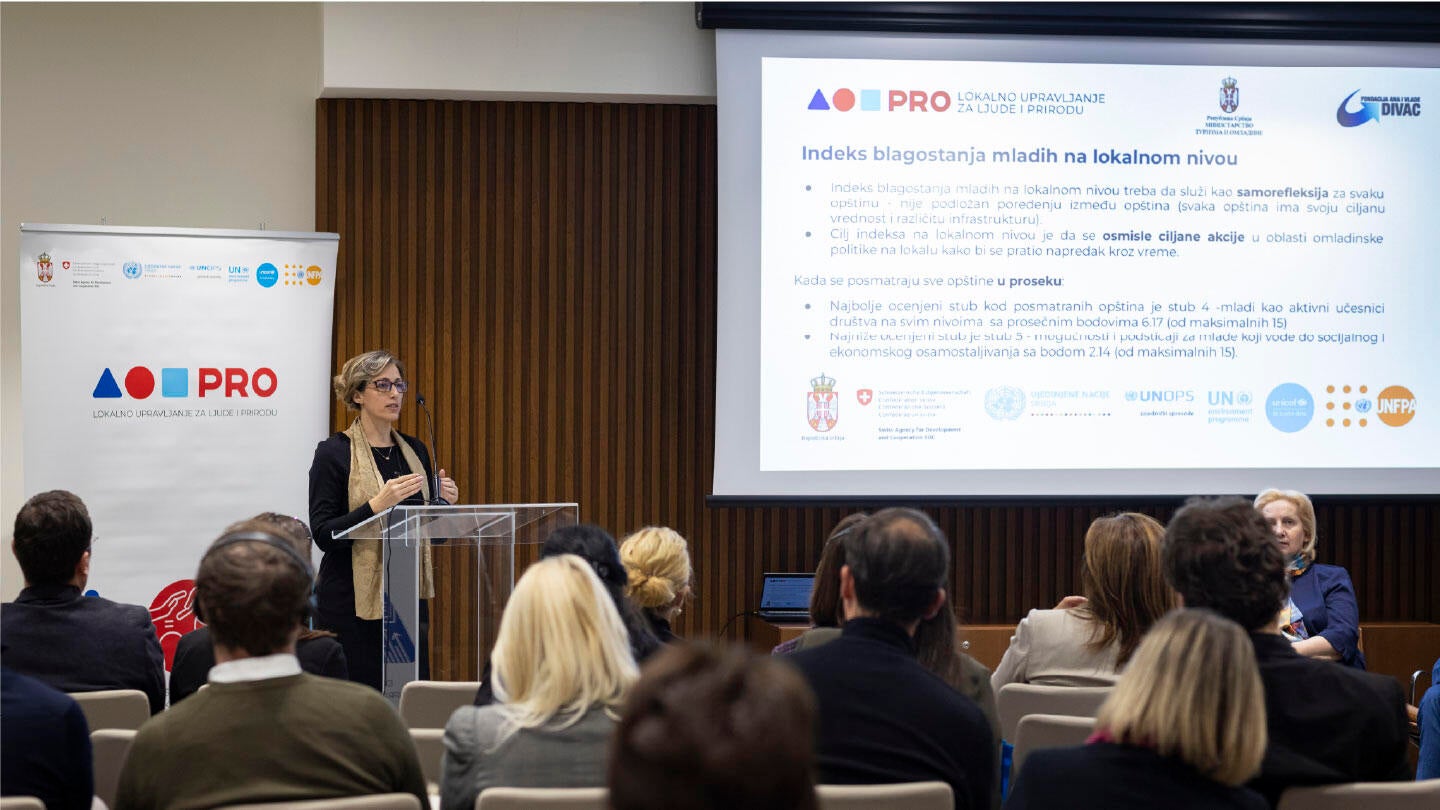First Youth Well-being Index launched in Serbia
With 108 indicators at the national level and 98 at the local level, the Youth Well-being Index provides a comprehensive overview of progress in achieving the goals of the National Youth Strategy and improving the position of young people in Serbia.
It also enables detailed monitoring of various aspects of young people's lives at all levels. The Index was developed to provide reliable data as a basis for creating and monitoring youth policy implementation, while also encouraging cooperation among all actors involved in working with young people.
The Youth Wellbeing Index (YWI) is designed to measure a broad range of factors that impact youth, including education, employment, digital literacy, mental and physical health, safety, environmental protection, and social inclusion. The YWI includes a total of 108 indicators, 103 of which are quantitative and 5 qualitative. These indicators offer a clear and systematic approach to monitoring progress at both national and local levels.
At the national level, the Youth Wellbeing Index serves as an essential tool for evaluating the implementation of Serbia’s Youth Strategy, which aligns with the Sustainable Development Goals (SDGs) and the 2030 Agenda. The Index helps monitor general trends in youth wellbeing, with specific indicators related to youth poverty, education, and employment, among others. By annually updating its values, the Index provides a timely overview of youth challenges and supports evidence-based policymaking, helping to prioritize action for improving the lives of young people.
At the local level, the Youth Wellbeing Index provides municipalities and youth organizations with detailed insights into the unique needs of young people within their communities. Local data, drawn from youth surveys and statistical sources, helps guide the development of youth programs and strategies that focus on non-formal education, creating safe youth spaces, and promoting volunteerism. Local governments can use the Index to make data-driven decisions, fostering transparency and enabling the exchange of best practices across municipalities.
The Youth Wellbeing Index serves as a valuable resource for a wide range of stakeholders. Ministries and institutions can use the Index to align policies and optimize resources, while local governments can design targeted, evidence-based interventions based on its insights. For youth, the Index provides a powerful tool for advocacy and active participation in decision-making processes. Civil society organizations can leverage the data to plan concrete activities that address the specific needs of young people, and international development partners can identify key areas where investment in youth wellbeing is most needed.
More than just a monitoring tool, the Youth Wellbeing Index is a driver of change. It fosters transparency, accountability, and youth participation, ensuring that young people have the opportunity to thrive and contribute to their communities. Through this initiative, Serbia is taking an important step towards creating a future where young people are empowered and positioned to become leaders of positive societal change.
The launch of the Youth Wellbeing Index marks a significant milestone in the country’s commitment to improving youth wellbeing, providing a robust framework for action at both national and local levels.
Development of the Index has been supported by the United Nations Population Fund (UNFPA) in collaboration with The Ministry of Tourism and Youth and the Ana and Vlade Divac Foundation. Piloting of the Youth Well-being Index was supported by the Government of Switzerland within the Programme "PRO - Local Governance for People and Nature", which is jointly implemented by the United Nations Agencies in Serbia - UNOPS, UNICEF, UNFPA and UNEP, in cooperation with the Government of the Republic of Serbia. This comprehensive tool is part of the Demographic Resilience Programme and will play a critical role in supporting the implementation of the Youth Strategy of the Republic of Serbia (2023–2030).


